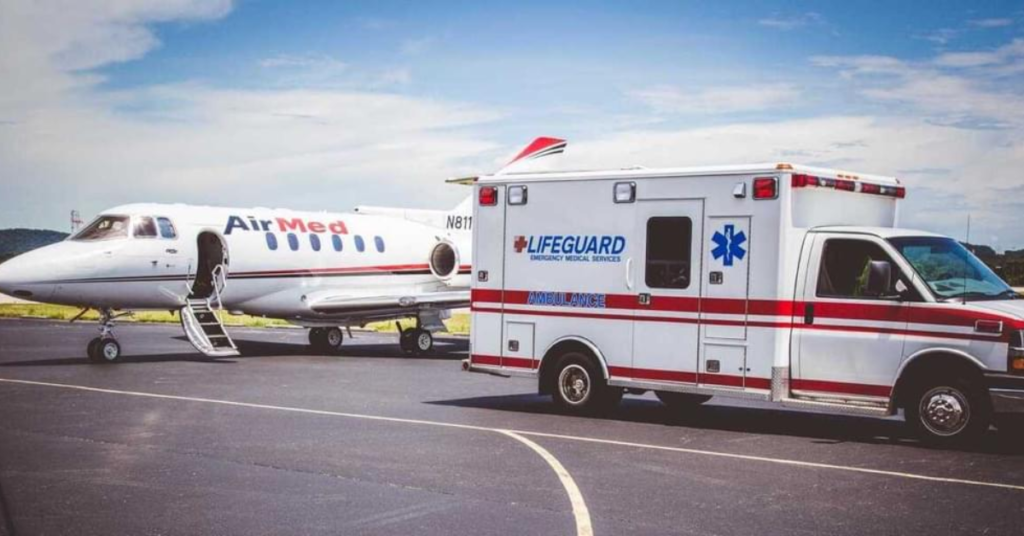Travel Insurance Guide: What’s Covered and What’s Not
Travel Insurance Guide: What’s Covered and What’s Not – This in-depth guide explains everything you need to know about travel insurance in 2025. Learn what typical policies cover, such as trip cancellations, medical emergencies, and lost baggage, and discover what’s not included—like pre-existing conditions and high-risk activities. Whether you’re planning a vacation, business trip, or adventure abroad, this article helps you choose the right travel insurance policy with confidence and avoid unexpected expenses during your journey.
What Is Travel Insurance and Why Do You Need It?
Travel insurance is a type of protection that helps travelers recover financial losses resulting from trip disruptions. It can include coverage for medical emergencies, cancellations, delays, and even personal liability.
In many cases, travel insurance is required for visa processing or group tours. Even when not mandatory, having coverage gives peace of mind, especially if you’re traveling to countries with expensive healthcare or unpredictable weather conditions.
Travel insurance is particularly beneficial for:
- International travelers
- Students studying abroad
- Cruise passengers
- Adventure tourists
- Business travelers attending overseas conferences
Also Visit This The Future of Car Insurance
What Travel Insurance Typically Covers
1. Trip Cancellation and Interruption Coverage

This is one of the most important features of travel insurance. If you have to cancel or cut short your trip due to unforeseen reasons like illness, family emergencies, natural disasters, or even job loss, this coverage will reimburse you for non-refundable travel expenses such as flights, hotel bookings, or tour packages.
It’s crucial to book your insurance policy soon after paying for your trip to qualify for full cancellation protection.
2. Emergency Medical Expenses and Evacuation

Many people mistakenly believe their domestic health insurance covers them abroad—it often doesn’t. A quality travel insurance policy provides:
- Coverage for hospitalization and outpatient care
- Emergency evacuation to the nearest qualified medical facility
- Repatriation of remains in case of death
3. Lost, Damaged, or Delayed Baggage
Baggage mishandling is a common travel issue. Most insurance plans offer reimbursement for lost, stolen, or damaged luggage. If your bags are delayed for a specific time (usually 12–24 hours), you’ll receive compensation for essentials like clothing and toiletries.
Some policies even cover the loss of personal items such as electronics or prescription glasses, though these are often subject to limits.
4. Travel Delays and Missed Connections
If your flight is delayed or you miss a connecting flight due to weather, airline error, or technical issues, travel insurance can help cover:
- Extra hotel stays
- Meal expenses
- Transportation to your destination
Policies typically define a minimum delay time before benefits apply—usually between 6 to 12 hours—so reading the fine print is essential.
5. Personal Liability Protection
This part of travel insurance protects you in case you accidentally cause injury to someone or damage property while traveling. While often overlooked, personal liability coverage for travelers is important, especially if you’re renting vehicles or participating in group activities.
What Travel Insurance Does Not Cover
While travel insurance is incredibly useful, it doesn’t cover everything. Knowing what’s excluded helps you avoid disappointment when filing a claim.
1. Pre-Existing Medical Conditions
Most standard plans exclude pre-existing medical conditions, unless you buy a waiver or special rider. If you have heart disease, diabetes, or any chronic illness, make sure your insurer knows upfront.
Failure to disclose medical history can lead to claim denials.
2. High-Risk or Adventure Activities
Activities like skydiving, scuba diving, mountaineering, or bungee jumping are considered high-risk sports and are not typically covered unless you opt for an adventure sports rider.
Look for policies that include “adventure travel insurance coverage” if your itinerary includes thrill-seeking.
3. Trip Cancellation for Non-Covered Reasons
Most policies only cover cancellations for specific reasons, like illness, injury, or a natural disaster. Canceling your trip due to fear, bad weather forecast, or a change of heart is not covered—unless you purchase “Cancel For Any Reason (CFAR)” coverage at an extra cost.
This type of policy allows greater flexibility but may only reimburse 50–75% of your costs.
4. Claims Involving Alcohol or Drugs
Incidents that occur under the influence of alcohol or illegal drugs are not covered under most travel insurance plans. This includes accidents, injuries, or theft that happen while intoxicated.
5. Illegal Activities or Unlicensed Providers
If you’re involved in illegal activities or receive treatment from an unlicensed medical provider, your insurance claim will likely be rejected. Always seek care from recognized institutions.
Optional Benefits and Add-Ons
Many travel insurers now offer add-on coverages tailored to modern traveler needs, including:
- COVID-19 coverage: Some policies include testing, quarantine, and treatment expenses
- Identity theft protection: Useful for digital nomads and business travelers
- Rental car damage protection: Covers minor damage and theft of rental cars
- Travel document replacement: Helps replace lost passports or visas abroad
These add-ons may come with higher premiums but provide important protections depending on your destination and travel style.
Tips for Choosing the Right Travel Insurance Policy
Choosing the right plan depends on multiple factors. Here’s what to consider:
- Trip Cost and Duration: More expensive and longer trips warrant comprehensive coverage.
- Destination Risk: Traveling to areas prone to natural disasters, political unrest, or outbreaks may require more robust protection.
- Activity Level: If you’re planning hikes, water sports, or tours, look for policies that include activity-related coverage.
- Existing Coverage: Check if your credit card offers travel insurance benefits—but don’t rely on it entirely.
- Compare Multiple Providers: Use insurance comparison platforms to find the best combination of coverage and cost.
- Read the Policy Carefully: Know what is and isn’t covered, and clarify limits, deductibles, and claim procedures.
Common Mistakes to Avoid When Buying Travel Insurance
- Buying the cheapest policy without reading details
- Failing to disclose medical history or travel plans
- Delaying the purchase of insurance after booking a trip
- Assuming all policies cover COVID-19 or pandemics
- Not keeping receipts or documentation for claims
Avoiding these mistakes ensures a smoother claims experience and better financial protection.
Do You Really Need Travel Insurance?
Here’s a quick checklist to decide:
- Are you traveling internationally?
- Do you have prepaid, non-refundable bookings?
- Will you be engaging in high-risk activities?
- Is there a chance you might need to cancel or delay your trip?
- Are you traveling to a country with expensive or limited medical care?
Conclusion
Travel insurance is no longer a luxury—it’s a necessity for modern travelers. By understanding what your policy covers and what it doesn’t, you can travel with confidence, knowing you’re protected against life’s unpredictable moments.
From trip cancellations and medical emergencies to delayed baggage and optional adventure sports coverage, choosing the right travel insurance plan helps you protect your investment and stay stress-free while exploring the world.
Before you book your next journey, compare providers, read the fine print, and choose a plan that aligns with your travel needs. It’s a small price to pay for peace of mind and financial security.






One Comment